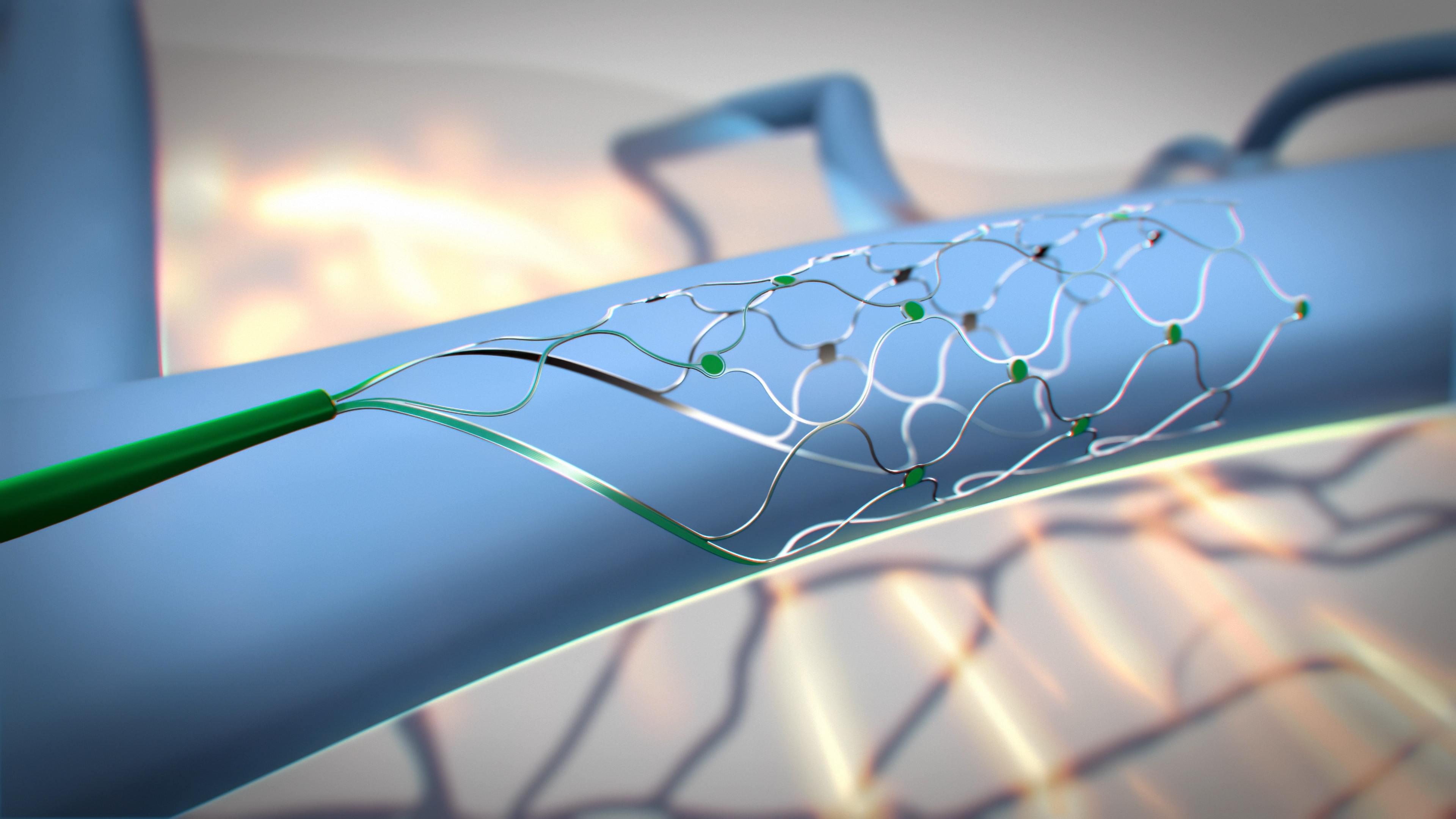- Brain signals corresponding to motor intent were reliably captured and converted into digital motor outputs (DMOs) over the 12-month study period




NEW YORK--(BUSINESS WIRE)--#BCI--Synchron, a brain-computer interface company, today announced positive results from the COMMAND study evaluating the safety and efficacy of the Synchron brain computer interface (BCI) device in six participants over a 12-month period.
The study results were presented today at the 2024 Congress of Neurological Surgeons in Houston, Texas, by Dr. Elad Levy, Co-Principal Investigator of the COMMAND study and SUNY Distinguished Professor and L. Nelson Hopkins Endowed Chair of Neurosurgery at the Jacobs School of Medicine and Biomedical Sciences at the University at Buffalo and co-director of the Gates Stroke Center and Cerebrovascular Surgery at Kaleida Health’s Buffalo General Medical Center/Gates Vascular Institute.
The COMMAND study was conducted at three clinical sites: Mount Sinai Health System in New York City, UB Neurosurgery/Gates Vascular Institute and UPMC, in collaboration with Carnegie Mellon University College of Engineering. The study was conducted with support from the NIH BRAIN Initiative. COMMAND enrolled six patients with severe chronic bilateral upper-limb paralysis unresponsive to therapy, all of whom received the BCI implant.
All six patients successfully met the primary endpoint of no device-related serious adverse events resulting in death or permanent increased disability during the 1-year post implant evaluation period. The COMMAND study results reported that patients had no serious adverse events (SAEs) related to the brain or vasculature during the 12-month period.
The study also demonstrated that brain signals related to motor intent can be consistently captured and transformed into digital motor outputs, allowing participants to successfully perform a range of digital tasks. In 100% of cases, the Stentrode device was accurately deployed, achieving target motor cortex coverage in the brain for all six patients. The median deployment time was 20 minutes.
“The COMMAND study results represent a major medical milestone, confirming the safety of the Stentrode BCI with no neurologic safety events reported during the 12-month study period,” said Levy, M.D., MBA, FAANS, FACS, Co-Principal Investigator, COMMAND trial, and president of UB Neurosurgery (UBNS). “This minimally-invasive approach has the potential to unlock BCI technology at scale for the millions of patients with paralysis and other mobility challenges.”
“The users were able to generate Digital Motor Outputs (DMOs) with the BCI. These are simple, thought-derived expressions of intent, converted into digital actions on computers,” said Tom Oxley, M.D., Ph.D., CEO & Founder, Synchron, and instructor in the Department of Neurosurgery for Mount Sinai Health System. “Making the DMOs easy to use, stable over time and generalizable across technology platforms, will unlock layers of independence and autonomy for patients.”
The COMMAND study is the first FDA-approved investigational device exemption (IDE) trial of a permanently implanted BCI. The results highlight the Synchron BCI’s safety profile, stable signal performance, and reliable surgical delivery. As an endovascular BCI, the fully internalized system offers long-term signal stability, providing a new path for patients to regain functional independence through digital interfaces.
The Synchron BCI is implanted in the blood vessel on the surface of the motor cortex of the brain via the jugular vein, through a minimally-invasive endovascular procedure. Once implanted, it is designed to detect and wirelessly transmit motor intent out of the brain, and intended to restore the capability for severely paralyzed people to control personal devices with hands-free point-and-click.
For more information about the Synchron BCI and our registry, visit https://synchronbci.com.
About Synchron
Synchron is a neurotechnology company developing an endovascular brain-computer interface (BCI) designed to restore functionality in people with severe paralysis. The clinical-stage company is developing a neuroprosthesis to restore motor signaling to control digital devices and autonomy for individuals with motor impairment. Synchron is headquartered in New York City. For more information, visit www.synchron.com. Follow us @synchroninc.
Contacts
Media
Kimberly Ha
Synchron
kha@synchron.com




